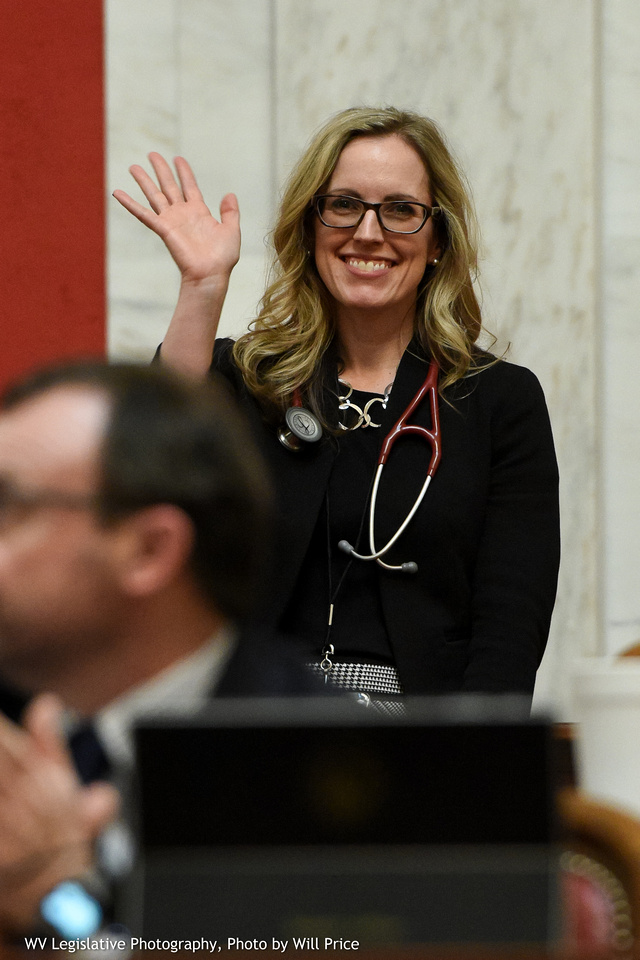Program Builds a Relationship Between State Physicians and Lawmakers
The West Virginia Legislature is celebrating the 30th anniversary of the Doc for the Day Program. The Legislature has a long history of providing educational programs during the legislative sessions which include the Legislature’s Page Program for students, grades 6 thru 12, undergraduate and graduate internships that gives college students the opportunity to work with lawmakers and staff on a daily basis, and the Doc for the Day Program.
The program is sponsored by the West Virginia Chapter of the Academy of Family Physicians (WVAFP), and is authorized every session under agreement of the Speaker of the House of Delegates and the President of the State Senate. William Ferrell, a former administrator for the WVAFP, created the Doc for the Day Program in 1989, which was the first of its kind anywhere in the nation. Ferrell saw this program as an opportunity to build a relationship between the family physicians around the state and the legislature.
The Doc for the Day Program gives family physicians from across the state, including practicing physicians from Marshall and West Virginia University’s medical schools, to volunteer their medical services for a day during the 60-day legislative session. Physicians who volunteer their time provide medical services to legislators, legislative staff, government officials, and visitors at the Capitol. Health insurance is not required, no fees are charged, and appointments are not necessary for medical services rendered by the Doc for the Day. The family physicians work in the Capitol Dispensary, but are available for house calls anywhere in the Capitol, or the Capitol Complex. If the Doc for the Day is not available, a full time registered nurse is also available for assistance.
Lori Brown, the Capitol’s registered nurse, just started in her new positon this legislative session, and has already fallen in love with the job.
“This job is the best of both worlds for me,” said Brown. “I get to hear what is happening in the capitol, and I get to see patients as well who are all so kind and friendly. It’s a nice change from working at a hospital or office.”
The program is a great educational tool for both the family physicians and for the legislatures. Family physicians who volunteer their time at the Capitol get to immerse themselves into the legislative process that directly impacts the medical industry, and the program also educates legislative leaders and staff about the importance of family physicians.
The most important part of the program above all is treating the patients that walk in every day. Mary Ann Maurer, President of the WVAFP and faculty member at Charleston Area Medical Center, has participated in the program five times since 2014, and enjoys coming back every time to work with patients.
“I enjoy the opportunity to see the Legislature up close and personal, and providing care for the visitors and staff around the Capitol,” said Maurer. “I love seeing the patients. Lots of people visit the Capitol and become sick, or staff that come in for a checkup; other people stop by just to say hello.”
The Doc for the Day Program is the most successful program by the WVAFP, and is probably because of money and man power it saves the Legislature. By providing a family physician in the Capitol every day and free of charge, it saves valuable time for legislators that would have had to leave the Capitol to be treated for medical reasons.
As of this year, approximately 50,000 patients have received free medical service since the creation of the Doc for the Day Program in 1989, and averaging roughly 1,700 patients per legislative session.

